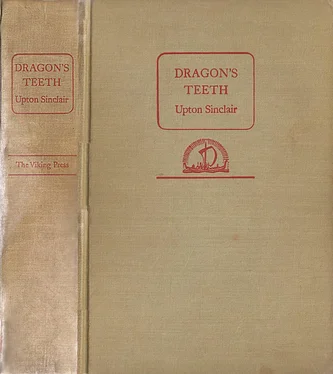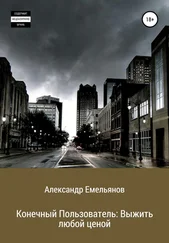Пользователь - o 3b3e7475144cf77c
Здесь есть возможность читать онлайн «Пользователь - o 3b3e7475144cf77c» весь текст электронной книги совершенно бесплатно (целиком полную версию без сокращений). В некоторых случаях можно слушать аудио, скачать через торрент в формате fb2 и присутствует краткое содержание. Жанр: Старинная литература, на русском языке. Описание произведения, (предисловие) а так же отзывы посетителей доступны на портале библиотеки ЛибКат.
- Название:o 3b3e7475144cf77c
- Автор:
- Жанр:
- Год:неизвестен
- ISBN:нет данных
- Рейтинг книги:4 / 5. Голосов: 1
-
Избранное:Добавить в избранное
- Отзывы:
-
Ваша оценка:
- 80
- 1
- 2
- 3
- 4
- 5
o 3b3e7475144cf77c: краткое содержание, описание и аннотация
Предлагаем к чтению аннотацию, описание, краткое содержание или предисловие (зависит от того, что написал сам автор книги «o 3b3e7475144cf77c»). Если вы не нашли необходимую информацию о книге — напишите в комментариях, мы постараемся отыскать её.
o 3b3e7475144cf77c — читать онлайн бесплатно полную книгу (весь текст) целиком
Ниже представлен текст книги, разбитый по страницам. Система сохранения места последней прочитанной страницы, позволяет с удобством читать онлайн бесплатно книгу «o 3b3e7475144cf77c», без необходимости каждый раз заново искать на чём Вы остановились. Поставьте закладку, и сможете в любой момент перейти на страницу, на которой закончили чтение.
Интервал:
Закладка:
However, Lanny wasn't there to convert two Nazi officials. He permitted Hugo Behr to speak
to him as one comrade to another, and now and then he made notes of something which might
be of interest to the reading public of Britain. Hugo was newer in the movement than
Heinrich, and more naive; he had swallowed the original Nazi program, hook, line, and
sinker; that was the creed, and when you had quoted it, you had settled the point at issue.
Lanny Budd, cynical worldling, product of several decadent cultures, wanted to say: "How can
Hitler be getting funds from von Papen and the other Junkers if he really means to break up
the great landed estates of Prussia? How can he be getting funds from Fritz Thyssen and the
other steel kings if he means to socialize big industry?" But what good would it do? Hugo
doubtless thought that all the party funds came from the pfennigs of the workers; that
banners and brassards, brown shirts and shiny boots, automatic pistols and Budd machine guns
were purchased with the profits of literature sales! Heinrich, perhaps, knew better, but
wouldn't admit it, and Lanny wasn't free to name the sources of his own information. Better
simply to listen, and make careful notes, and let Rick write an article entitled: "England,
Awake!"
II
Right after the elections came a trial in Berlin of three officers charged with having made
Nazi propaganda in the army. It attracted a great deal of public attention, and Adolf Hitler
appeared as a witness and delivered one of his characteristic tirades, declaring that when his
party took power the "November criminals," meaning the men who had established the
Republic, would be judged by a people's tribunal. "Heads will roll in the sand," he said. Such
language shocked the civilized German people, and Johannes Robin took it as a proof of what
he had been saying to Lanny, that all you had to do was to give this fellow rope enough and he
would hang himself. There was a demand from many quarters that Hitler be tried for treason;
but probably the government was of the same opinion as Johannes. Why hang a man who
was so ready to hang himself? The three officers were dismissed from the army, and Adi went
on making his propaganda—in the army as everywhere else.
Lanny invited Hauptmann Emil Meissner to lunch with him, and they talked about these
problems. Kurt's eldest brother, a World War veteran, had the younger's pale blue eyes and
close-cropped straw-colored hair, but not his ardent temperament; he agreed with Lanny that
Kurt had been led astray, and that the Führer was a dangerous fanatic. Emil was loyal to the
existing government; he said that would always be the attitude of the army, and was the
obligation of every officer, no matter how much he might disapprove the policies of the
politicians in control.
"Would you obey the Nazis if they should take power?" inquired the American.
Emil shut his eyes for a moment, as if to hide the painful reaction which such a question
caused in him. "I don't think it is necessary to contemplate that," he said.
Lanny replied: "The present election has made me do it." But he didn't press the point.
Emil placed his faith in Germany's symbol of loyalty, Feldmarschall and now Prasident Paul
Ludwig Hans Anton von Beneckendorff und von Hindenburg. The old commander had won the
battle of Tannenberg, the one complete victory the Germans had gained, with the result that
the people had idolized him all through the rest of the war. In every town they had set up
huge wooden statues of him, and it had been the supreme act of patriotism to buy nails and
drive them into this statue, the money going to the German Red Cross. The Hindenburg line
had been another name for national security, and now the Hindenburg presidency was the
same. But the stern old titan was now eighty-three years old, and his wits were growing dim; it
was hard for him to concentrate upon complex matters. The politicians swarmed about him,
they pulled him this way and that, and it was painful to him and tragic to those who saw it.
Emil Meissner had been on the old field marshal's staff during part of the war, and knew his
present plight; but Emil was reserved in the presence of a foreigner, especially one who
consorted with Jews and had a sister and a brother-in-law love to Adolf Hitler, and reported
that the President refused to recognize this upstart even as an Austrian, but persisted in
referring to him as "the Bohemian corporal," and using the name of his father, which was
Schicklgruber, a plebeian and humiliating name. Der alte Herr had steadily refused to meet
Corporal Schicklgruber, because he talked too much, and in the army it was customary for a
non-commissioned officer to wait for his superior to speak first.
Emil expressed his ideas concerning the disorders which prevailed in the cities of the
Republic, amounting to a civil war between the two sets of extremists. The Reds had begun it,
without doubt, and the Brownshirts were the answer they had got; but Emil called it an
atrocious thing that anybody should be permitted to organize a private army as Hitler had
done. Hardly a night passed that the rival groups didn't clash in the streets, and Emil longed
for a courageous Chancellor who would order the Reichswehr to disarm both sides. The Nazi
Führer pretended to deplore what his followers did, but of course that was nonsense; every
speech he made was an incitement to more violence—like that insane talk about heads rolling
in the sand.
So far two cultivated and modern men could agree over their coffee-cups. But Emil went on
to reveal that he was a German like the others. He said that fundamentally the situation was
due to the Allies and their monstrous treaty of Versailles; Germany had been stripped of
everything by the reparations demands, deprived of her ships, colonies, and trade—and no
people ever would starve gladly. Lanny had done his share of protesting against Versailles, and
had argued for helping Germany to get on her feet again; but somehow, when he listened to
Germans, he found himself shifting to the other side and wishing to remind them that they had
lost the war. After all, it hadn't been a game of ping-pong, and somebody had to pay for it.
Also, Germany had had her program of what she meant to do if she had won; she had
revealed it clearly in the terms she had forced upon Russia at Brest-Litovsk. Also, there had been
a Franco-Prussian War, and Germany had taken Alsace-Lorraine; there had been Frederick the
Great and the partition of Poland; there had been a whole string of Prussian conquests—but
whose redness was notorious. On the other hand, an officer of the Reichswehr owed no you had
better not mention them if you wanted to have friends in the Fatherland!
III
Three evenings a week Freddi and Rahel went to the school which they helped to support.
Freddi taught a class in the history of economic theory and Rahel taught one in singing, both
subjects important for German workers. Lanny went along more than once, and when the
students old and young discovered that he lived in France and had helped with a school there,
they wanted to hear about conditions in that country and what the workers were thinking and
doing. Discussions arose, and Lanny discovered that the disciplined and orderly working people
of Germany were not so different from the independent and free-spoken bunch in the Midi.
The same problems vexed them, the same splits turned every discussion into a miniature war.
Читать дальшеИнтервал:
Закладка:
Похожие книги на «o 3b3e7475144cf77c»
Представляем Вашему вниманию похожие книги на «o 3b3e7475144cf77c» списком для выбора. Мы отобрали схожую по названию и смыслу литературу в надежде предоставить читателям больше вариантов отыскать новые, интересные, ещё непрочитанные произведения.
Обсуждение, отзывы о книге «o 3b3e7475144cf77c» и просто собственные мнения читателей. Оставьте ваши комментарии, напишите, что Вы думаете о произведении, его смысле или главных героях. Укажите что конкретно понравилось, а что нет, и почему Вы так считаете.




